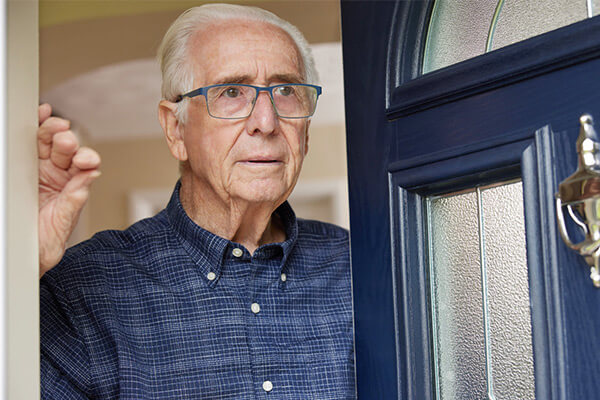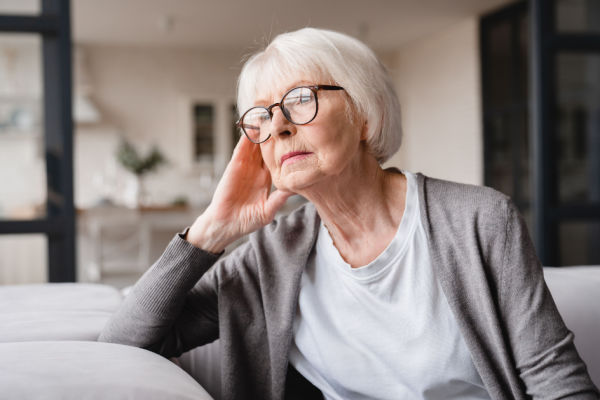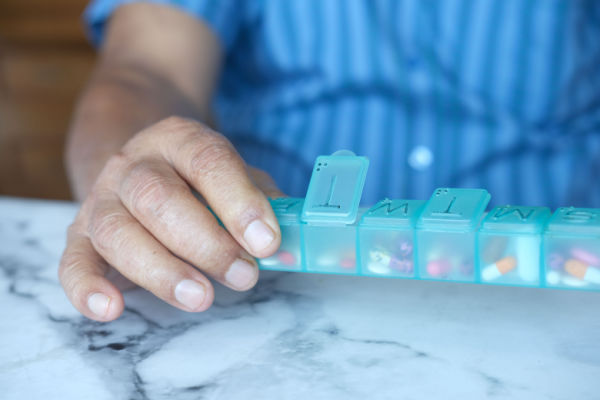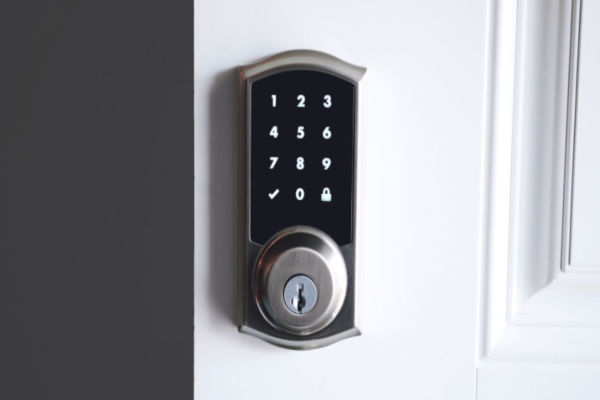No products in the cart.

Exclusive Offer!
Stay safe 24/7 anywhere you go, around town or at home.
Stay safe 24/7 where you spend the most time. Easy to use & affordable.
Turn your smartphone into a personal safety device with this 24/7 monitoring app that’s the ultimate resource for keeping you safe.
Pair it with the Aster app to maximize ease of use and convenience. Click one button to call emergency services.

Taking care of an aging loved one is a big responsibility that can feel even more overwhelming when your loved one has dementia.
Among other things, a person living with dementia will need extra help with doing everyday tasks like cooking and getting dressed.
Luckily, there are many technological developments that have been built for this specific reason— to make the lives of aging adults and those living with dementia feel safer.
Although assistive gadgets can be useful, over 70% of older adults believe these devices will take away their freedom.
However, the main goal of assistive technology is to promote independence among aging adults while improving the safety of their living conditions.
Assistive technology can be especially helpful to make caring for loved ones with dementia easier. We’ve put this article together to show you how.
Dementia is a disease that involves difficulty remembering things, thinking, or making decisions. It also affects a person’s problem-solving skills. This is caused by damage to or loss of nerve cells and their connections in the brain.

However, the causes and triggers of dementia are still largely unknown and often unavoidable. As dementia progresses, a person will experience more challenges with everyday activities.
Some of the most common challenges faced by older adults that are dementia patients include:
Over time, people living with dementia may also lose their ability to speak or hold coherent conversations.
Adults in the early stages of dementia will begin to encounter problems living on their own, and these challenges will become more significant with time.
Many assistive technology devices can help improve the daily life of an aging adult with dementia.
It can also make life easier and less stressful for caregivers who are looking after loved ones with dementia.
These gadgets are there to promote independence among older adults while reducing safety risks around their homes.
It may also reduce the stress associated with being diagnosed with a condition like dementia because assistive technology can help your loved ones maintain a healthy life.
Many devices may also help a dementia patient to complete daily tasks that they may find challenging on their own.
Over time, this can improve a person’s productivity and motivation to participate in life and complete everyday tasks.
With the help of assistive technology, family members may also experience less anxiety about the safety of their loved ones.
| 4 Things to Consider Before Purchasing Assistive Technology Although assistive technology can be a great way to help loved ones with dementia live a safer life, it may not be the right solution for everyone. Here’s what you should consider before investing in any gadgets for dementia patients. If you’re purchasing gadgets on behalf of someone else, it’s essential to have their consent before you do. Everyone experiences dementia differently and will have their own way of wanting to deal with it, so you should make sure that they are comfortable with the devices. Keep the return policy in mind when purchasing assistive technology. The devices might not be a good fit for your loved one, so make sure you would be eligible for a refund if it doesn’t work out. Even with assistive technology, a person with dementia may still need other forms of support. You should be prepared to assist them in any other way they may require and to make adjustments as their needs change. Make sure that the person understands the purpose of assistive technology. For some, it might seem like you are trying to spy on them or monitor their every move. The reality is that these gadgets aim to improve aging adults’ quality of life, so have a conversation with your loved one about this. |
Many facilities specializing in memory care recommend purchasing assistive gadgets to help aging adults with dementia maintain a healthy daily routine.
Let’s take a closer look at some of the assistive technology gadgets that can promote an independent and safe lifestyle for adults who live with dementia.
A medical alert device is a small, portable system that can be installed in the home or worn around the neck, arm, or waist to ensure someone’s safety in the event of an emergency.
These systems have various features like fall detection, medication reminders, and even GPS tracking, depending on the one you choose.
A medical alert system can be programmed to automatically call 911 or a family member if a fall or other injury occurs.
This makes them a great option for aging adults who live or travel alone and are prone to injury— like people who live with dementia.
Logicmark’s range of products has been specially designed to connect caregivers or emergency services directly to the person living with dementia — all at the push of a button.
One of the things that aging adults with dementia struggle with is keeping track of time. They may even start to forget what day or year it is as their condition progresses.
A simple time tracker that shows them both the time and date can serve as an aid to help them remember details about their day. This can help ease any time-related anxiety they may feel.
More expensive options can also display weather reports to help aging adults make more sense of their environment.
Time trackers can also be a soothing agent if they become confused about where they are —especially during mid-stage dementia when forgetfulness increases.
As a person with dementia’s forgetfulness and memory loss worsens, they may not remember to take their daily medication.
This can increase the risk of overdosing or forgetting important medication that they need. Numbered pill boxes can be a helpful reminder of when to take which medication throughout the day.

A loved one or caregiver will ideally prepare the box for the week ahead by putting the correct pills into each day’s compartment.
Boxes with compartments for the morning and evening are also recommended if the aging adult has to take medication at different times.
These boxes can help caregivers check that their loved ones are taking medication they need without risking an accidental overdose.
Remember that these boxes are not the same as automated pill dispensers, so someone will have to refill them every week.
Some aging adults living with dementia may develop a habit of wandering off and forgetting where they are or how to get home.
Wearable GPS systems offer a great solution for helping to track individuals and making sure that they are safe.
Caregivers and family members can connect to the device and enable alerts for when their loved one leaves their home.
This helps them to locate the person with dementia and ensure that they get home safely.
People with dementia who tend to wander are at risk of hurting themselves or becoming completely disoriented and lost.
Smart locks can help keep aging adults with dementia in areas that are safe and familiar to them — like their homes and gardens.
These locks can also prevent your loved ones from wandering off without a family member or caregiver.

Smart locks are developed to open with ease for caregivers or family members but may present a challenge for aging adults with dementia who try to open them.
However, these locks can also be controlled remotely if your loved one needs to leave their home for an emergency or other activity.
All they need to do is to contact their caregiver or family member, who will then be able to unlock the door from wherever they are.
This remote unlocking feature is also useful if your loved one gets into trouble — like getting locked out of their house.
A smart lock can be placed on front and back doors or even on cupboards where hazardous objects are stored.
Home monitoring devices allow caregivers or family members to control elements — like lights and thermostats — inside a person’s home.
These devices could be programmed to send alerts to a caregiver’s phone if your loved one forgot to do something in their house.
The alerts allow caregivers to remind people living with dementia to complete daily tasks, or they can do it themselves. This helps caregivers to ensure the safety of their loved ones.
For example, the device can alert them if they forget to lock their doors and switch off their lights, or help them to track everyday items like their keys.
This ensures that adults with dementia can be reminded of incomplete tasks without losing their sense of independence.
At Logicmark, we understand how challenging it can be to take care of a loved one living with dementia — especially if it affects a close family member.
Assistive technology does not only help your loved ones — it also reduces the anxiety family caregivers experience when they assume their new roles.
No matter what your needs are, we have a product that can help. View the full product range on our website, or get in touch with us directly for a tailored recommendation.

Spending time outside is one of the best ways to boost both physical and mental well-being

When a medical emergency strikes, every second counts. Whether it’s a fall, heart attack, stroke, or another critical event

Medical alert devices can be life-saving tools for seniors, providing quick access to emergency help when needed. However, convincing older adults to adopt these devices isn’t always easy.

For many seniors, maintaining independence is a top priority. They value the ability to live in their own homes, continue their daily routines, and
QUICK LINKS
RESOURCES